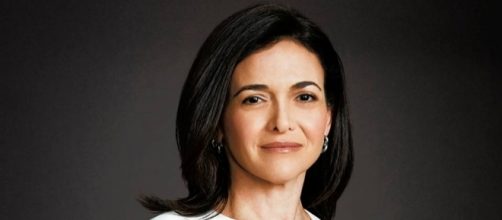sheryl sandberg was interviewed by co-anchor Robin Roberts on ABC's "Good Morning America" on Monday, April 24, 2017. The Facebook chief operating officer was there to talk about how she is still dealing with the death of her husband, Dave Goldberg, who died suddenly from a cardiac arrhythmia while exercising when they were on vacation with friends in Mexico in 2015. The unexpected death of the tech executive left his widow to take care of their two young children.
'Option B'
Sandberg, 47, was also on the morning talk show to promote her new book "Option B" where she writes about recovering from the sudden death of her husband and how she is working through the grief she still encounters.
The full title of the book is “Option B: Facing Adversity, Building Resilience, and Finding Joy.”
Sandberg actually co-wrote the book with her friend Adam Grant. He is a psychologist at the Wharton School of the University of Pennsylvania. Grant is the one who gave Sandberg the inspiration for the title of the book. When she mentioned to Grant that she was sad that Dave was not around to take one of the children to a father-child event, Grant told her that since option A was not available, she needed to go to option B and give it her all.
Sandberg told Roberts during the interview that everyone lives through some form of option B. Even people who are sick with cancer, in prison, jobless, divorced and are dealing with unbearable loss have an option B when option A is no longer available.
Highlights from book
Before Sandberg's interview ended, she took the time to give some highlights from her book that is being released on Monday, April 24, 2017. First, the widow gave advice on what to say and not to some to someone who is grieving. She pointed out that after her husband's death, even her closest friends didn't know what to say to her.
Sometimes people would avoid saying anything at all. That made her feel invisible. She concluded that it is better for people to speak with empathy instead of ignoring the situation.
She further explained that asking "How are you?" should be replaced with "How are you today?" The first question is obvious after a tragedy. Sheryl explained that she prefers for someone to ask how she is doing at that moment.
The second thing Sheryl wants people to know is that grieving people need encouragement. From her own experience of returning to work at Facebook, Sheryl said she lost her confidence when colleagues did her work for her and rationalized why she wasn't doing her usual amount of work. While people thought they were helping by making excuses, Sheryl believed that encouraging her would have helped much better.
The third point Sheryl discusses in her book is that resilience can be accomplished when three things starting with the "P" are considered. Avoid personalization that says you are at fault. Stay away from pervasiveness believing that an event will affect every area of your life. The last one is permanence that means what you are facing today will last forever. Permanence is the one Sheryl admits she had the most trouble with.

